Disclaimer
This summary is not intended to be relied upon as a final analysis in resolving the applicability of, legal questions surrounding, and compliance with the Corporate Transparency Act. The information presented herein is intended to summarize the Act as it pertains to Homeowner and Condominium Associations. There is no substitute for a thorough review of the provisions of the Act in conjunction with an association’s current governing, tax, and corporate documents by an experienced and competent attorney.
The Corporate Transparency Act: An Analysis for Texas Homeowner and Condominium Associations
- Summary
The Corporate Transparency Act, effective January 1, 2024, was created to improve transparency in ownership and control of business entities operating in the United States. It imposes reporting requirements on companies about the entity and its management. Entities that fall within the parameters of the Act, referred to as “Reporting Companies,” must initially report certain information, regarding the entity and beneficial ownership, within a specific time frame, and submit updated reports when changes occur and corrected reports in instances where inaccurate information has been previously submitted. It is anticipated that 32.6 million businesses will be required to comply with this reporting requirement.
The Corporate Transparency Act is not part of the tax code. Instead, it is a part of the Bank Secrecy Act, a set of federal laws that require record-keeping and report filing on certain types of financial transactions. Under the Act, reports will not be filed with the IRS, but with the Financial Crimes Enforcement Network (“FinCEN), another agency of the department of the treasurer. The Corporate Transparency Act intends to end the use of “shell” companies used in the commission of certain crimes. There are steep, escalating fines and possible jail time for noncompliance with the Act’s requirements. Whether we agree with the Act or not, compliance is both mandatory and advisable.
Below please find a breakdown of the Corporate Transparency Act, along with our analysis as to which entities must report, the information to be reported, and our recommended actions for Texas property owners’ associations to be compliant with the Act. Should you have any questions, please feel free to reach out to Manning & Meyers at Casey@HOALegal.com and we will be happy to assist you in your compliance efforts.
- Overview and Mandatory Reporting Responsibilities
- Reporting Company. Reporting Companies are defined under the Act as domestic reporting companies or foreign reporting companies. For the purposes of this summary, our focus will be on domestic reporting companies. Under the Corporate Transparent Act, reporting companies are obligated to disclose information regarding beneficial owners and company applicants.
- Domestic Reporting Company. A domestic reporting company is any entity that is a corporation, limited liability company, or created by filing documentation with a secretary of state or similar office under State or Indian tribal law. As most Texas property owners’ associations are incorporated with the Texas Secretary of State as nonprofit entities, they would be considered a domestic reporting company under the Corporate Transparency Act.
- The initial report for an existing domestic reporting company created prior to January 1, 2024, must be filed no later than January 1, 2025. This would require any Texas property owners’ Association subject to the reporting requirements under the Act to file a report by January 1, 2025.
- Domestic reporting companies created in 2024, must file the initial report within 90 days of the earlier of 1) the date it receives notice that it’s been created or 2) the date when public notice that the company has been created is provided.
- Domestic reporting company created on or after January 1, 2025, must file the initial report within 30 days of the earlier of 1) the date it receives notice that it’s been created or 2) the date when public notice that the company has been created is provided.
- Initial Report. The initial report must include specific information about the domestic reporting company and regarding every beneficial owner and company applicant.
- The report must include the following with regards to the domestic reporting company:
- The full legal name of the reporting company. For purposes of a Texas property owners’ Association, this would be the name of the Association;
- Any trade name or “doing business as” name of the reporting company. Most Texas property owners’ associations do not do business under any trade name;
- A complete current address of its principal place of business;
- The State or Tribal jurisdiction of formation of the domestic reporting company. For Texas property owners’ associations, this would be the State of Texas; and
- The Internal Revenue Service (IRS) Taxpayer Identification Number (TIN) (including an Employer Identification Number (EIN)) of the reporting company.
- The following information must also be included for every beneficial owner and company applicant (note that the following information is not required for company applicants for entities already in existence as of January 1, 2024, however it is required for beneficial owners):
- Their full legal name;
- Their date of birth;
- Their complete current address as defined in the Act;
- A unique identifying number as defined in the Act; and
- An image of the document from which the unique identifying number was retrieved.
- The report must include the following with regards to the domestic reporting company:
- Beneficial Owner. The Corporate Transparency Act defines Beneficial Owner as any person who, directly or indirectly, has substantial control over the reporting company or owns or controls 25% of the ownership interest of the entity. This would include directors and officers of a Texas property owners’ Association.
- Company Applicant. The Corporate Transparency Act defines Company Applicant as the person who files the document that creates the company; where multiple individuals are involved with the filing, a person who is primarily responsible for controlling or directing the filing. This would include attorneys and developers working together to create Texas property owners’ associations.
- Substantial Control. Under the Corporate Transparency Act, an individual exercises substantial control over the company if the individual serves as a senior officer, has authority to appoint or remove any senior officer or a majority of the board, influences, determines or directs significant decisions, or exhibits any other form of substantial control over the company.
- Updated Report. Domestic reporting companies are required to submit updated reports within 30 days after any change that occurs in information previously submitted.
- Corrected Report. Corrected reports must be filed within 30 days from when a domestic reporting company knows of or has reason to know of an inaccuracy in the information previously submitted.
- FinCEN. The Federal Crimes Enforcement Network of the United States Department of Treasury, referred to as FinCEN, is responsible for the enforcement of the Corporate Transparency Act. All reports must be submitted electronically to FinCEN utilizing their secure filing system which will be available on their website. There is no fee associated with submitting reports and FinCEN is currently working on forms that may be used when preparing the reports. A FinCEN identifier will be assigned to each individual or reporting company.
- Penalties for Failure to Comply with the Corporate Transparency Act
Noncompliance with the Corporate Transparency Act carries significant penalties, including daily fines starting at $500 and reaching up to $10,000 for each violation. Additionally, individuals may face imprisonment for up to two years for failure to comply. It’s important to note that neglecting to file the initial report can lead to a fine of up to $10,000. However, if further updates are required and not submitted due to the absence of this initial report, the fines can accumulate significantly beyond $10,000 before the Financial Crimes Enforcement Network (FinCEN) notifies the reporting company of the violation.
Furthermore, the intentions of the reporting company and its agents regarding their noncompliance will be considered in determining potential criminal penalties. With these considerations in mind, Texas property owners’ associations must treat compliance under the Act with utmost importance.
- Entities Exempt from the Corporate Transparency Act
The Corporate Transparency Act contains several exceptions for entities and individuals that are exempt from filing reports as outlined above. The most relevant exemption for homeowners’ associations and condominium associations is the exemption for entities that claim tax exempt status under Section 501 of the Internal Revenue Code. Specifically, entities described in Section 501(c) of the Internal Revenue Code are exempt from the reporting obligations of the Corporate Transparency Act. Nonprofit organizations which promote social welfare are a category of organizations tax exempt under Section 501(c) of the Internal Revenue Code. These include charitable organizations, churches and religious organizations, private foundations, political organizations and other nonprofits. However, homeowners associations and condominium associations rarely claim tax exempt status under this Section.
- Applicability to Homeowner and Condominium Associations
- Applicability to Homeowner and Condominium Associations. As homeowners’ associations and condominium associations are created by the filing of a document with a public office, such as the Texas Secretary of the State, they are subject to the provisions of the Corporate Transparency Act and must comply with the terms of the Act unless they claim tax exemption under Section 501(c) of the Internal Revenue Code.
- Section 528 of the Internal Revenue Code. Generally, homeowners’ associations and condominium associations are tax exempt in accordance with Section 528 of the Internal Revenue Code, which applies exclusively to different types of property owners’ associations. It should be emphasized that organizations exempt under Section 528 of the Internal Revenue Code are not exempt from the reporting requirements of the Corporate Transparency Act.
- Applicability to Directors and Officers within the Association. The board of directors for homeowners’ associations and condominium associations likely qualify as beneficial owners under the Corporate Transparency Act as they often serve as senior officers of the board, and exercise substantial control over the association in their official capacity, and are charged with making decisions on behalf of the members of the Association. As such, unless circumstances vary significantly, beneficial ownership reports under the Corporate Transparency Act must be filed for the Association. Additionally, updated reports must be filed when information within the report changes.
- Applicability to Managers and Management Companies for Property Owners’ Associations. Property management companies act as agents for property owners’ associations, however, our analysis does not show that they exhibit substantial control over a company as defined under the Corporate Transparency Act. As such, absent further clarification from FinCEN, we do not recommend that a property manager or property management company be included within the report unless the management company’s contract with the Association allows for the exercise of substantial control over the Association.
- Recommended Actions for Homeowner and Condominium Associations
Texas homeowners’ associations and condominium associations in existence as of January 1, 2024, claiming tax exemption under Section 528 of the Internal Revenue Code should plan to comply with the reporting responsibilities outlined in the Corporate Transparency Act, by filing an initial report, by January 1, 2025. We recommend associations begin gathering all information and document images needed for the initial report as listed previously herein.
For Texas homeowners associations and condominium associations created in 2024 or later, the Act requires Company Applicants to be identified in the report as well as Beneficial Owners. A Company Applicant is the individual who files the Certificate of Formation with the Texas Secretary of State.
- Associations created prior to January 1, 2024 must file their initial report by January 1, 2025.
- Associations created in 2024 must file their initial report within 90 days of their formation.
- Associations created in 2025 will only have 30 days to file the initial report.
- Associations that have changes to previously reported information or discover inaccuracies in previously filed reports must file an update within 30 days.
Manning & Meyers, Attorneys at Law, can assist with preparing and filing the appropriate reports to assure compliance with the Corporate Transparency Act . Our firm can also ensure adherence with FinCEN’s reporting system and standards.
If unsure whether compliance is required, Manning & Meyers, Attorneys at Law can further assist by determining whether an association claims tax exempt status under Section 501(c) or Section 528 of the Internal Revenue Code, which will entail of a thorough review of all relevant tax and business records of the association. If the association is found to claim tax exemption under Section 501(c), we can ensure the association properly claims an exemption under the Corporate Transparency Act, to prevent violations from being imposed.
Alternatively, if the association is determined to claim tax exempt status under Section 528 of the Internal Revenue Code, our Firm can review the association’s documents and circumstances, advise whether it is eligible under Section 501(c) of the Internal Revenue Code, and if so, aid with the paperwork necessary to claim exemption under the same.
Should you have any questions, please feel free to reach out to Manning & Meyers at Casey@HOALegal.com and we will be happy to assist you in your compliance efforts.



